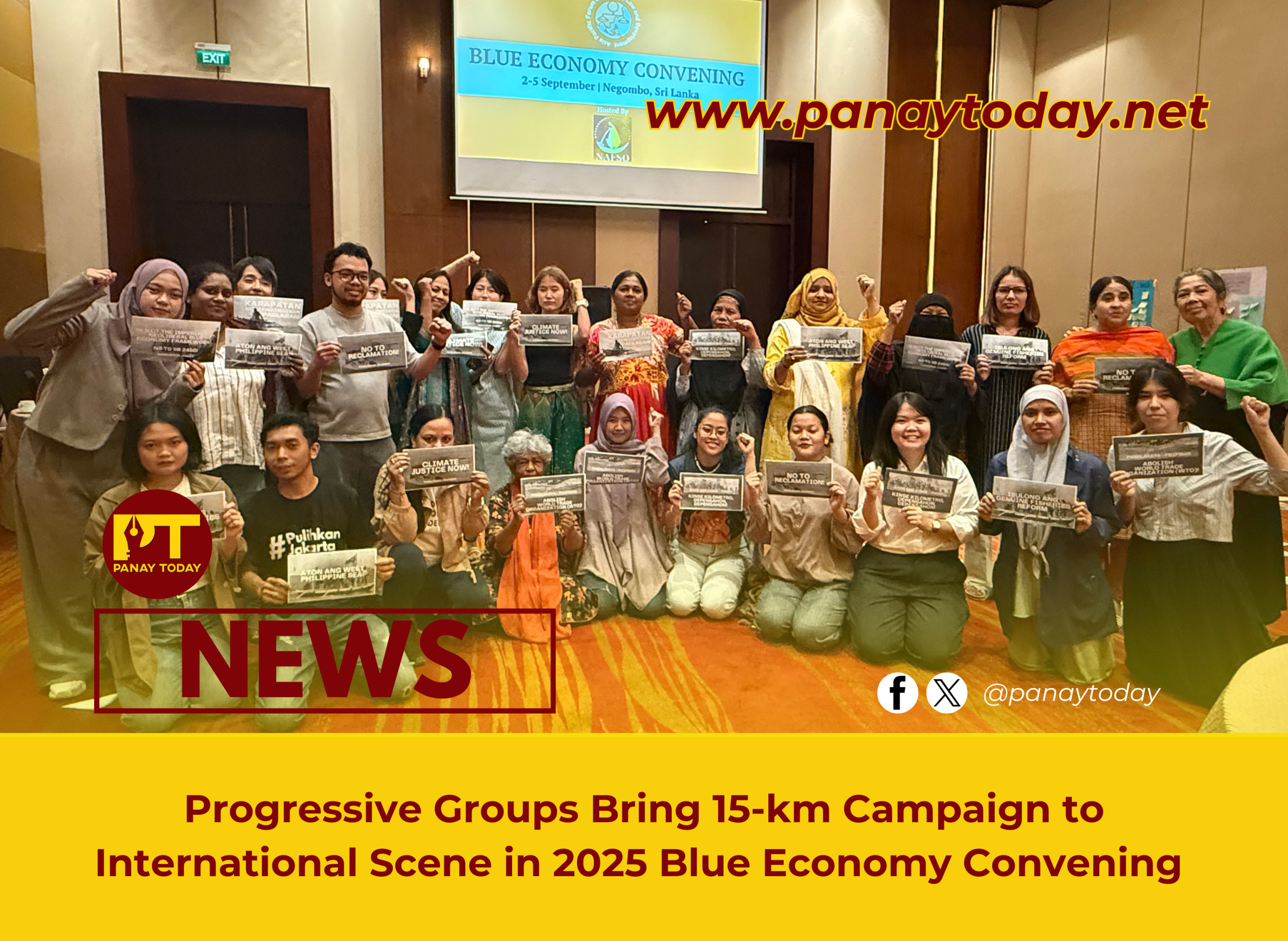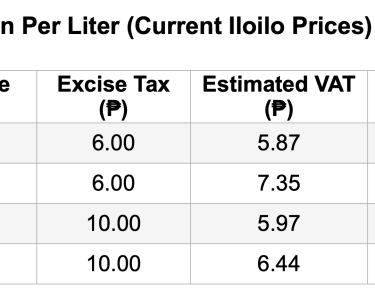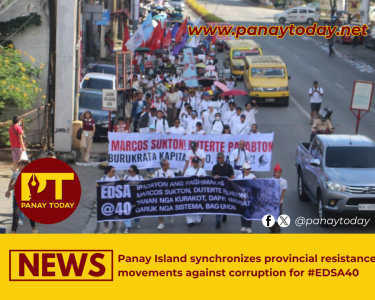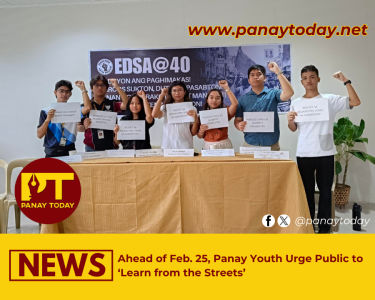By Tiffany Xu
Last September 2-5, regional chapters of militant fisherfolk organization Pambansang Lakas ng Kilusang Mamamalakaya (PAMALAKAYA) in Panay and Navotas represented the Philippines during the 2025 Blue Economy Convening held in Negombo, Sri Lanka, with calls to forward climate justice, sovereignty over municipal, national waters, and genuine fisheries reform.
Led by the Asia Pacific Forum on Women, Law, and Development (APWLD) and locally hosted by the National Fisheries Solidarity Movement (NAFSO), the convention brought together approximately 40 participants from non-government organizations, grassroots communities, and keynote speakers across 11 countries to reframe the blue economy agenda and discuss its nexus with global trade, climate, militarism, and gender equality.
Blue economy an ‘imperialist, neoliberal’ framework, groups say
Parallel to the green economy framework, the idea of a ‘blue economy’ likewise emerged by 2012 to serve as a marine counterpart for sustainable development, according to the Small Island Developing States (SIDS).
However, participants during the convention raised alarm over its increasingly extractionist nature in recent years, which capitalizes on identifying key frontiers such as aquaculture, oil and gas extraction, tourism, and maritime transport, among others, for maximum economic utilization.
“Under blue economy, neoliberal capitalism is extremely linked to militarism… [and] due to the colonization of the seas and trade routes. Imperialism is always hungry for capital, it will try to take everything away from us until there is nothing left,”says Azra Sayeed, Secretary-General of the International League of Peoples’ Struggles (ILPS).
Whereas, Maureen Penjueli from Fiji claims that conservation and exploitation go hand-in-hand. “When they tell us to conserve 30% of the world’s oceans by 2030, on the other side of the picture what we’re not seeing is the 70% exploitation that is happening,” Penjueli laments.
Fisherfolk and climate reps lay bare the Philippine context
Delegates from the Philippines highlighted current anti-fisherfolk policies in the country as manifestations of the marine plunder caused by the blue economy framework.
In a brief plenary discussion, fisheries activist and Aton Ang Kinse Panay Coalition representative Tiffany Xu presented the relationship of commercial fishing and climate alongside Rachelle Junsay, coordinator of Peoples Rising for Climate Justice (PRCJ).
Xu delved into the case specifics of the controversial Mercidar ruling that now allows commercial fishers to operate in nearshore waters. While laying down its legal, socioeconomic, and scientific implications, Xu states, “This landmark ruling, which took advantage of the loopholes of the anti-poor Fisheries Code, is just one of the many ways in which powerful actors are even able to maneuver what most would consider as legitimate mechanisms for sustainability. It liberalizes and shifts fishing access, control, and blame of overfishing towards municipal fisherfolk, with little to no accountability coming from our government institutions and top exploiters.”
RELATED: Fisherfolks Convene to Protest Supreme Court Ruling on Commercial Fishing (https://panaytoday.net/fisherfolks-convene-to-protest-supreme-court-ruling-on-commercial-fishing/)
Fisherfolk in Miagao Protest SC Ruling on Commercial Fishing (https://panaytoday.net/fisherfolk-in-miagao-protest-sc-ruling-on-commercial-fishing/)
In addition, Junsay supplemented the argument that commercial fishing exacerbates climate change, leaving vulnerable communities at the forefront of receiving the first-hand effects of calamities and disasters.
Meanwhile, Terence Repelente from PAMALAKAYA-Navotas gave keynote presentations on reclamation and the dangers of the Agreement on Fisheries Subsidies (AFS) by the World Trade Organization (WTO).
According to Repelente, ratification from only three more countries is needed for the AFS to take effect. Since 2022, the WTO’s push for the AFS is said to curb illegal, unreported, and unregulated fishing (IUUF) by preventing the subsidization of programs believed to promote it.
“We contend that fisheries should not be commodified, and subsidies relating to fisheries should be off the WTO negotiating table. Fisher peoples must not be criminalized or made accountable for IUUF. We demand the government to respect the fishing rights of small-scale fisherfolk (SSF), abolish monopoly, and cooperativize distribution and fleets. We also push for national industrialization, uphold food sovereignty, and include SSF in decision-making. We must reject the entire system that prioritizes foreign capital, extraction and profit over people’s rights and national development,” he asserts.
In his last presentation, Repelente highlighted the vibrant multi-sectoral and community-led movements in the Philippines against reclamation and other environmental-related issues despite threats of displacement and terror-tagging.
Forging international solidarity
To cap off the 2025 Blue Economy Convening, delegates sat down on the last day to strategize and share movement-building efforts. As leaders in their respective communities, the majority of the attendees confirmed their commitment to localizing people-led campaigns in tackling the false narratives and solutions of a blue economy.
The Philippine representatives vowed to continue their Atin Ang Kinse, anti-reclamation, and similar campaigns. An Atin Ang Kinse Bill will be filed in Congress on October 16, according to PAMALAKAYA-Philippines, to secure the rights of municipal fishers within the first 15 kilometers of the coasts.
The convention was composed of attendees from Sri Lanka, the Philippines, Indonesia, Myanmar, Thailand, Fiji, Japan, South Korea, Bangladesh, Pakistan, and India./PT





